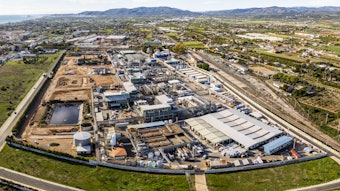Takasago released a study on its hydrogen catalyst Deneb, developed by its fine chemicals division to be an efficient asymmetric transfer hydrogenation catalyst.
Copublished with Takao Ikariya in an e-version of the American Chemical Society (DOI: 10.1021/ja207283t), the study defined the importance of catalytic asymmetric transfer hydrogenation in the manufacturing of fragrance, as well as in pharmaceutical and agriculture, products without hydrogen. It also noted how the current conventional technology, RuCl (arene)(N-sulfonylated diamine), has been used to produce pure alcohols, but that the large consumption of the catalyst and limited applicable substrates are known disadvantages of this method.
This study also explained how Deneb’s advantages included easy handling, no need for hydrogen and no special equipment requirements. It also noted how the use of Deneb resulted in catalyst loading that could be cut down to max. 1/60, enabling lower catalyst costs and reduced residual Ru in products, as well as higher enantioselectivity and a wider range of applicable substrates.










